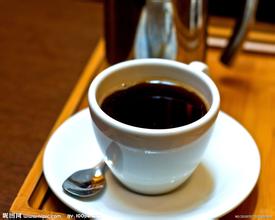Introduction to the flavor and taste characteristics of fine coffee beans in Coffee Variety producing area of Crystal Mountain, Cuba
The popularity of home-made coffee has spawned a proliferation of family-style cafes. For workers who can't afford coffee at home, sipping it outside the window of a family cafe has become the best option. And the price is cheaper in this family cafe, where coffee usually costs 1 peso, or 3 cents. In Cuba, coffee beans are mostly picked by hand. During the ripening period of coffee beans, they are picked about once every half month. During or after picking, coffee beans are sorted to eliminate immature and bad beans to ensure coffee quality. Cubans usually treat coffee beans in two ways--sun and water. Solarization is the simplest, cheapest, and most traditional way to treat coffee. It involves drying the coffee fruit in the sun, but not fermenting it. The average drying time is about four weeks. The washing law allows more of the fruit aroma to enter the coffee beans, thus adding a coarse mineral fruit aroma to the coffee.
At present, Crystal Mountain coffee is very precious. There are two main reasons for this. The first reason is the economic sanctions imposed by the United States against Cuba, which do not allow Cuba to import goods. The second reason is that Cuban coffee beans are currently mostly bought by French and Japanese markets, especially Japan, so it is difficult to buy coffee beans directly from Cuba today. Despite this, Cuban coffee in the hearts of coffee lovers around the world, still can be compared with Jamaica Blue Mountain Coffee Cubita is Cuban coffee, export markets to Japan, France, Germany, Ireland, Canada and other countries. Cubita coffee entering the Chinese market is all selected from the uncontaminated Crystal Mountain coffee beans of Cuba's high altitude areas, which are typical Caribbean coffee beans. All coffee beans are strictly selected according to the standard of sieve 17-19, and the coffee beans screened by the sieve have large particles and high maturity. Cubita is all hand-picked and refined by washing to remove defective beans and other impurities to a large extent.
Cigars, coffee and sugar cane are the three major industries of the Republic of Cuba and enjoy a high reputation in the world. Cuban cigars have a very high reputation in the world and are known as the world's first cigars; Cuban coffee also has a high reputation in the coffee industry. Cuban Crystal Mountain Coffee ranks first in the world. Crystal Mountain is adjacent to the Blue Mountains of Jamaica. The climatic conditions are similar, comparable to Jamaica Blue Mountain Coffee. Similarly, Cuba's Crystal Mountain coffee production is not high every year, so there are many times when there is no market. Cubita is an important economic trade that Cuba has established friendly relations with China. In Cuba, coffee beans are mostly picked by hand. During the ripening period of coffee beans, they are picked about once every half month. During or after picking, coffee beans are sorted to eliminate immature and bad beans to ensure coffee quality. Cubans usually treat coffee beans in two ways--sun and water. Solarization is the simplest, cheapest, and most traditional way to treat coffee. It involves drying the coffee fruit in the sun, but not fermenting it. The average drying time is about four weeks. The washing law allows more of the fruit aroma to enter the coffee beans, thus adding a coarse mineral fruit aroma to the coffee.
Cuba is like a crocodile crouching in the Caribbean, her tail just above the Tropic of Cancer. Cubans have always been known for their enthusiasm, but also for their honesty and stubbornness. The coffee they produce is the same, always washed according to Arab standards for coffee, and they always follow their own traditions to make it, very extreme control of the roasting process, both to have a very delicious rich and smooth coffee flavor, but also to keep the coffee beans from over-roasting and causing heat.

Important Notice :
前街咖啡 FrontStreet Coffee has moved to new addredd:
FrontStreet Coffee Address: 315,Donghua East Road,GuangZhou
Tel:020 38364473
- Prev

Peruvian Coffee varieties with balanced Taste description of Fine Coffee Flavor characteristics of Taste and Baking degree
In recent years, coffee has become the main agricultural product for Peru to earn foreign exchange. But Peruvian coffee cultivation is still very scattered, primitive family-style small-scale cultivation. At the same time, Peruvian coffee consumption is very different from that of Colombia and Brazil in South American countries. According to statistics, the per capita annual coffee consumption in Colombia and Brazil is 2.5 kg and 6 kg, while that in Peru is 2.5 kg and 6 kg respectively.
- Next

Introduction to the baking degree of high-quality coffee beans in El Salvador coffee producing areas
The Salvadoran flag was launched in 1822, rescinded in 1865 and restored in 1912. The Constitution of the year of the Salvadoran Flag in 1972 was officially established as the national flag. The national flag is rectangular, with a ratio of length to width of 335 to 189. From top to bottom, the flag is connected by three parallel equal horizontal rectangles of blue, white and blue, and the central part of the white part is painted with the national emblem. Because El Salvador used to be
Related
- Detailed explanation of Jadeite planting Land in Panamanian Jadeite Manor introduction to the grading system of Jadeite competitive bidding, Red bid, Green bid and Rose Summer
- Story of Coffee planting in Brenka region of Costa Rica Stonehenge Manor anaerobic heavy honey treatment of flavor mouth
- What's on the barrel of Blue Mountain Coffee beans?
- Can American coffee also pull flowers? How to use hot American style to pull out a good-looking pattern?
- Can you make a cold extract with coffee beans? What is the right proportion for cold-extracted coffee formula?
- Indonesian PWN Gold Mandrine Coffee Origin Features Flavor How to Chong? Mandolin coffee is American.
- A brief introduction to the flavor characteristics of Brazilian yellow bourbon coffee beans
- What is the effect of different water quality on the flavor of cold-extracted coffee? What kind of water is best for brewing coffee?
- Why do you think of Rose Summer whenever you mention Panamanian coffee?
- Introduction to the characteristics of authentic blue mountain coffee bean producing areas? What is the CIB Coffee Authority in Jamaica?

